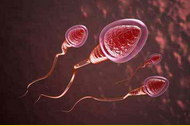The alpha man – the online counseling
(Part 15 from: The Man-Woman-conflict from evolutionary-psychological view)
(How spiritual assessments from the primeval times guide and influence love relationships)
.
The following example of a partnership concerning the subject “infidelity” is an excerpt from my article “Der Mann-Frau-Konflikt aus evolutionär-psychologi- scher Sicht”
The represented problems try to illustrate the deep primeval forces which trigger the causes of a fling during a committed relationship.
It is expressly mentioned that the evolutionary-psychologically explanations of human behaviour do not excuse the grief and the tragedy which are caused by these behaviour patterns – especially if children are involved.
.
* But we will not succeed in creating a better world if we don’t realize that the primitive forces from our evolutionary past still have influence on our present actions. *
(The following example is purely fictional! Any similarities with existing persons or situations are coincidental and unintentional.)
.
The alpha male wants all the women
.
Peter has been the chief medical director of cardiology at the heart center of a university hospital for some time. He is 43 years old and married to Elisabeth since 17 years. They have three children. They met at the university’s Mardi Gras party. Back then, Elisabeth was a law student and for Peter, the love of his life. After half a year, she got pregnant from Peter; she had no doubt that she wanted to have the child.
Peter`s parents – a distinguished family of doctors – insisted that they get married. It was obvious for Elisabeth that she would trade her academic career for the role as a mother, to be the supporting strength for her husband from now on.
They were a happy family for years and Peter, the successful doctor, climbed up the career ladder higher and higher. It was noticeable that a character change took place within him during this time. To understand this, it is necessary to speak verbosely: Peter grew up in a parental home which was shaped by an excessively dominant father. This gentleman was a neurologist and an internationally recognized medical specialist. At home and at the clinic, he was the classical demigod. His excessive ambition was also concentrated on his only son – with the notion – to make something very special out of him. He almost botched it!!! His authoritative style and his exceeding demanding attitude, tied to constant criticism made Peter lose the passion for school. Only at an elite college, far away from his parental home, he was successful to steady himself and to graduate from school passably.
However, he was never satisfied with himself at university despite good grades, because he had internalized the constant criticism of his dominant father so heavily. The old gentleman gave his filius a proper inferiority complex for life. Peter was rather shy and reserved with girls because he did not think he could touch ground with them.
First Peter was a nice guy…
He was the typical nice man who wanted to please everybody, always and everywhere. His wife Elisabeth came from a shattered parental home: Her father left her mother when Elisabeth was eight years old. Her mother reacted hereupon with depression and had to go to a clinic from time to time. Elisabeth was being cared for by a foster family for a longer period of time…
She was immediately taken when she met Peter, the calm, somewhat seemingly shy young man, who was profound and highly intelligent and who never beset her. His consistency and reliability conveyed security to her, which she had always missed in her parental home. So she did not have to think long about it to give up her academical career as she got pregnant.
His family was everything to Peter and he never forgot the big sacrifice Elisabeth made for him as she gave up her career and studies, only to be there for her family. She was the perfect mother to her children; just like the one she would have desired back then. She lived for her family and her husband’s professional success was certainly also hers to an extent.
One can imagine her resentment as she noticed Peter`s emotional withdrawal. On one hand, she gave the fault to a wear-out effect, which a lot of couples experience. On the other hand, she realized to her dismay, how her husband was changing and she perceived herself as the main reason for her misery.
…and later he becomes an alpha
And indeed: Peter, the quiet factual scientist and doctor, started to develop self-confidence and to come more and more out of his shell, which seemed to some in his sur- roundings as exaggerated.
Within five years, he had changed completely. He adopted an attitude, which would have brought honor to his father.
For a long time, rumor went through the clinic, that he had an affair with the very attractive female senior physician; he was also already seen with the deputy chief administrator in a dim restaurant. Elisabeth found bank statements with debits for an apartment which Peter had rented – there was no doubt for her what its purpose was…
– Which explanation model could we consult to look at Peter`s behavior from an evolutionary point of view?
Sexual hormones are “at fault”
The steroid hormone testosterone, which is concentrated ten times higher in the blood of men than in the blood of women, has an identical effect to the brain of both genders: commonly one cannot quite imagine this because testosterone absolutely counts as THE male hormone. Nerve centers at the areas of the diencephalon – responsible for sexuality and aggression – react very sensitive to the presence of this hormone, which leads to strong activity increases in these neuronal connections….
Testosterone has, because of this – for men and women – a strong influence on the libido and the urge for power. But also the reversed counts: Successful rivalry and the ascendancy in hierarchy drastically increase the blood level of the male sexual hormone.
It is helpful to look at the animal kingdom, to put these confusing facts in order: There have been primates on our planet for about the last 35 million years. The way of life in a group with an alpha male at its forefront is ancient. Usually, the alpha males are the biological fathers of the clan’s descendants.
Great respect pushes hormones to rock bottom
The male sexual hormone testosterone has a vital control function within a group of primates. It regulates the sexual and aggression urge of the male members and is thereby the mediator of the group dynamic.
This is possible because the presence of the awesome group chief suppresses the hormone production of the subordinates. The diminished sexual hormone level curbs the „appetite” of the lower ranking male primates for the females and furthermore, takes away the tendency to brawl with the boss.
The social interactions between the lower ranking and the highest ranking are accompanied on one hand, by gestures of submission and the “degrading of oneself” and on the other hand, by boasting and showing off.
The group boss’ self-confidence and a high testosterone level are direct implications of the submissiveness of the others – which they demonstrate toward him constantly.
One can heavily derange the group dynamics of a hierarchical animal circle with a dirty little trick: Is a lower ranking male injected with a depot load of testosterone propionate, he will become bolder, more self-confident and more combative. The improved assessment of his own strength is strangely immediately shared by the others and the doped one climbs up the ranks. However, only as long as the depot supply lasts. 😎
The evolutionary mechanisms are hundreds of millions of years old and form the interface between power and sexuality. A in a fight victorious animal gave proof of its good genes and therefore, it appears sensible to advance to a female wanting to mate, because its prospects are favorable.
The requirement for this is the strong surge of the sexual drive, which is triggered by an increasing sexual hormone level.
Victorious soldiers in a battle are doped up by adrenalin and endorphins so that their testosterone level rises „to know no bounds”. The strong drive, which the urge for aggression experiences in the process, motivates them to keep fighting, which is sensible because the mood of the combatants makes further victories probable.
The highly cranked up libido is responsible for the hideous excesses, which are committed by soldiers to the female civil population all over the world. One does experience these processes two levels lower at sport events: with athletes and spectators.
Even a finished doctoral dissertation or a professional promotion has a sexual hormone level, however only for a day or two.
Fundamental increases – so to say of the base value – emerge every time a person occupies a blatant higher social position permanently, or is exposed to a permanent competition, which is overcome successfully. Hence, we come back to our cardiologist Peter and his late awoken passion for attractive women:
The dominant father
The strong excessive standards Peter`s father demanded of him and which he could not live up to, pushed down his self-confidence for years. He internalized the assessment of his father on a deep emotional level. This is why he looked at most of his contemporaries as superior, even though there was no reason for it objectively.
The hormonal status and the self-confidence oriented themselves on this assessment because it was like that in his eyes. Many men have a normal lower sexual hormone level. One can live well with that, get a wife, have children and maybe be spared by a heart attack.
This is what happened to Peter all these years. His intelligence, his ambitiousness and his medical skills made him climb up the ladder of success unstoppably. Thereby, he was forced to rival with others and to assert himself. This put a humoral assimilation reaction in motion, which in turn increased the motivation to take on new challenges. The mechanisms of the neuronal reward system play a central role here…
This was the time when the character changed, like, already stated above, took place in Peter – which baffled everyone who knew Peter before:
In the daily clinic routine, he now appears colder and impersonal then previously – also toward patients. He often speaks with a low, sonorous voice, so one has to listen very closely to understand him correctly. He takes care of everything and every smallest detail has to be the way he determines. He reacts rigorous and reprimands his personnel when he detects putative misperformances. He clashed with the principal of the university during proceedings, which one could even read about in the local newspaper the next day.
However, he is always charming and receptive toward attractive women and he makes an effort to intensify acquaintances. Only a heartfelt camaraderie still connects him to his wife, the mother of his children. He does not feel any sexual attraction anymore for Elisabeth. There were periods, where he had three affairs at the same time.
Peter is a very nice example to show that we humans possess two different reproduction strategies, which come into action accordingly:
One – the “devoted father” – is the most common and popular model, at which the husband and wife work together to mutually raise the children. This strategy was very successful for a man in prehistoric times; which means it provided a statistical reproduction success, if he invested the first years in his child and his wife.
Testosterone prevents love
.
The other strategy is the one of the unfaithful Don Juan, who leaves his partner after a short time to move on to the next one.
This model works for him then, meaning it guarantees a statistical reproduction success as well, if the man has the ability to attract many different partners.
If he fathered many children this way and only a few of them stayed alive, then he fulfilled his mission of reproduction and above all, without the smallest cost for himself. Hence, he is the „evolutionary winner”.
The bill is paid by the women because in primeval times, they took on great investments which went down the drain, if the offspring did not survive.
The prehistoric man John Doe was not able to accomplish that. But alpha men in power and leadership positions could definitely achieve to father many children with many women during their reproductive lifetime.
Commonly observed, both models are successful and represent a so called evolutionary-stable strategy, which also determines the reproduction behavior of humans in the modern era.
Indeed did the model of the unfaithful Don Juan have no chance to establish itself as the only reproduction model because in general, the mothers needed the providing father. This strategy was only able to “hold” its evolutionary ground because there was an abundance of the “devoted father” strategy.
The Don Juan strategy represents an exploitative version from of the evolutionary-psychological point of view; the parasite version so to speak. But it is successful to a certain percentage and therefore, evolutionary stable. This is why it belongs to the entity of humans, even though it is frowned upon by society. This is why one can label the human behavior pattern in general as serial monogamous, with a tendency for polygamy.
Now it seems that the height of the testosterone blood level has an influence on which reproduction version a man favors: High blood levels, which rivalry oriented men in high social positions have and predominate the tendency to short-term partnerships. A normal high developed self-confidence, tied with high testosterone levels, apparently makes it very hard for men to fall in love and enter a deeper commitment.
The interesting constellation with Peter was, that the reproduction version “devoted father” was the priority in the first half of his life – due to his inferiority complexes. The second version, the Don Juan strategy, was activated due to his career boost, accompanied by rivalry and successful competition.
It is noted at the end, that certainly not every relationship with an “alpha male” must take this course. Here, it depends on how strongly someone internalized the value – and standard catalogue of his society and belief system. This acts dampening to the activating brain centers and slows down the “hunger for women”.
.
Infidelity as an evolutionary advantage for women
Every behavior pattern has a genetic component
Every human behavior pattern – even seemingly random or acquired ones – has a genetic root, that makes their existence possible. To learn how to speak takes a lot of practice for example – and a patient reference person. But that is not all: the human brain has been genetically programmed to learn how to speak for hundreds of thousands of years. If the cerebral structures are not there or have been destroyed – practice gets you nowhere.
With all other behavior patterns it is similar: the only difference being the share of acquired and inherited patterns. Thus, human beings have encoded in them behavior that leads one to be a faithful spouse or towards being a philandering individual.
To be precise: this is not to be mistaken as some man/woman having the monogamy gene or another having the philandering one. Every human being always has both dispositions. Normally the tendency towards monogamy is developed more strongly than the one that leads to infidelity – especially among women.
The strategy of being a loving and caring husband was a sure bet in to procreate prehistoric times– but an expensive one. The philandering strategy was the cheap but uncertain one, because of high child mortality among single mothers. But because it worked occasionally and because it was so effortless, the genes to philander prevailed among men for millions of years.
An affair with bitter consequences
The consequences of a prehistoric affair couldn’t have been any more different for the two sexes: while the prehistoric man could escape without any problem, the woman was potentially forced to go through nine months of pregnancy. Since there hardly are any costs for men, they have developed a much stronger appetite for casual sex or philandering than women.
While the woman would give birth after nine months, a man could have had sex with different women during that same time and cause many women to become pregnant, which would have spread his philandering genes even more widely. The precondition being that he would find enough willing sex partners of course.
Had a woman done the same, the result would still have been only one child after nine months. A strategy to philander for women therefore does not lead to a higher reproduction rate – like it does for men.
An affair needs to pay off!
If a prehistoric woman in evolutionary times agreed to an affair, the negative consequences for her could have been far-reaching. It is therefore even more surprising that she did every now and then let herself in. An affair must have had some use for her then that outweighed the disadvantages on average – otherwise it would have a fling.
An affair can get you good genes
In our evolutionary past, women needed to attract men that had good genes as well as a sense of family. The most desirable men are – as we know by now -often not too suitable for relationships.
To still get a hold of the genes of those super-men, the strategy of choice is to start an affair. She thereby obtains the super-genes she wants and the reliable husband at home helps raise a kid that is not his own.
The strategy of a cuckoo’s kid possibly gets the woman a son, who attracts women in much the same manner as his real father. This in turn could result in many grand-children that would spread their successful genes still further. Thereby the passion for great men is inherited further and further.
Make no mistake: the evolutionary-psychological explanations of human behavior sound sober and technical and of course are not the root of the described behavioral patterns – they only result as a consequence.
Such a prehistoric woman did not think of the genes of a prehistoric super-man in the slightest, so that she wanted to obtain them through an affair. Of course she did not even know the concept. She was just so impressed by this super-guy that she could not possibly resist…one thing led to another…
One more example: an explanation of why humans eat food might be that we seek to counter a negative energy balance –with the effect of raising the blood sugar level. But no one on earth eats because of this reason. We only eat to get rid of the torturing feeling of hunger. When that is gone, the blood sugar level has automatically normalized.
An affair helps to let go
An affair can be the catalyst for a woman to end an old relationship and start a new one. If women are not satisfied with their current partners, many are not capable of separating from them if there is not the prospect of a new better partnership.
This was probably also the case in ancient times. For a prehistoric woman it was most likely better to have a bad relationship during these hard times than to be alone. If a new man appeared on the horizon that was a better fit, the affair was the possibility to let go emotionally of the old relationship.
An affair can secure the existence
Due to the non-existence of a mating season among humans, it was possible for prehistoric women to enjoy sex even during their non-fertile days. Nature created female sexuality to tie a man to a woman. This liaison allowed a woman to participate in resources that men possessed. Men were used to provide food, shelter and emotional affection for women that they were sexually interested in.
Prehistoric women surely had more than one child that they conceived from more than one partner. For each of them it was a big advantage if they were able to obtain control of man somehow. Women, who were smart enough to understand that, were able to raise their kids more easily than the ones who weren’t. The genes of women with that talent were thereby concentrated among prehistoric people.
Women that cared for and breast-fed an infant were not able to conceive during that time – at least for three long years. If they had an affair during that time, they couldn’t become pregnant but profit from those other men. For some of these women this was surely an important „extra income“. This could also be the evolutionary origin of prostitution.
But evolution does not know ethical principles and favors behavior that secures one’s existence and thereby provides an advantage in survival.
On the other side – the “manly” side – evolution created strategies, that set bounds to female efforts. I will talk about this in more detail in the chapter on jealousy.










